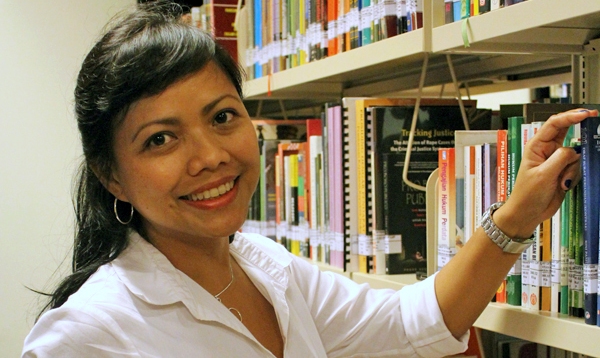UNAIR NEWS – The annual program of BSO International Law Students Association (ILSA) UNAIR Chapter, International Law Week (ILW), is back this year with an online concept. One of a series of ILW activities is ILW Talks which was held on Friday morning, December 11, 2020. This webinar invited a researcher from the Center for Indonesian Law and Policy Studies (PSHK) Bivitri Susanti as the speaker to discuss the topic, “36 Years after CEDAW Ratification in Indonesia: How Far it Goes”.
The Convention on the Elimination of All Forms of Discrimination Against Women (CEDAW) is an international convention which regulates a country must guarantee the elimination of all forms of discrimination against women. Indonesia itself has ratified this international convention through Law no. 7 of 1984.
Bivitri argues that the audience should differentiate between ‘existing’ and ‘effective’. This is because the ratification of CEDAW in Indonesia is only limited to its existence and its effective implementation is still rarely found. One example is the norm in the Election Law which requires that 30% of legislative candidates be women. Sometimes the implementation is only a formality, such as putting female candidates in the back ordering number.
“Another discrimination is in administrative matters where the only person who can be the head of the family is the male party, so there are some matters in administrative matters that cannot be accessed by women. In fact, the perpetuation of gender roles like this is not in accordance with the norms in CEDAW, ”said the lecturer of Jentera College of Law.
Legislation that is still unable to accommodate the increasing gender-based violence methods according to Bivitri is also a setback from the ideals of CEDAW norms. According to Bivitri, the practices of child marriage and female circumcision which are still legalized by Indonesian law is also very discriminatory against women’s rights.
University of Warwick alumni say that the area of advocacy that works best in eliminating discrimination against women under CEDAW is through the laws and institutions. Institutional mechanisms that support women’s rights in Indonesia already exist with the establishment of KOMNAS Perempuan and the Ministry of Women’s Empowerment and Child Protection.
“Laws are not a form of panacea, but the existence of laws can forcefully change a patriarchal culture and institutions. The existence of a law that agrees with the norms in CEDAW is also a form of recognition regarding the rights and types of violence against women legally, “said the alumni of the University of Indonesia.
According to Bivitri, the role of the community is needed so that these legal ideals can become real. Insights on gender diversity and the state’s obligation to accommodate women’s rights must be encouraged by various circles of society, especially the younger generation so that these efforts are not getting weaker by time.
“There have been developments from Indonesia to accommodate women’s rights, but we still have a lot of homework, therefore we must not stop fighting,” she concluded.
ILW Talks also invited KOMNAS Perempuan Commissioner Rainy Hutabarat and this webinar was the first of two ILW Talks that were held on that day.
Author: Pradnya Wicaksana
Editor: Nuri Hermawan





